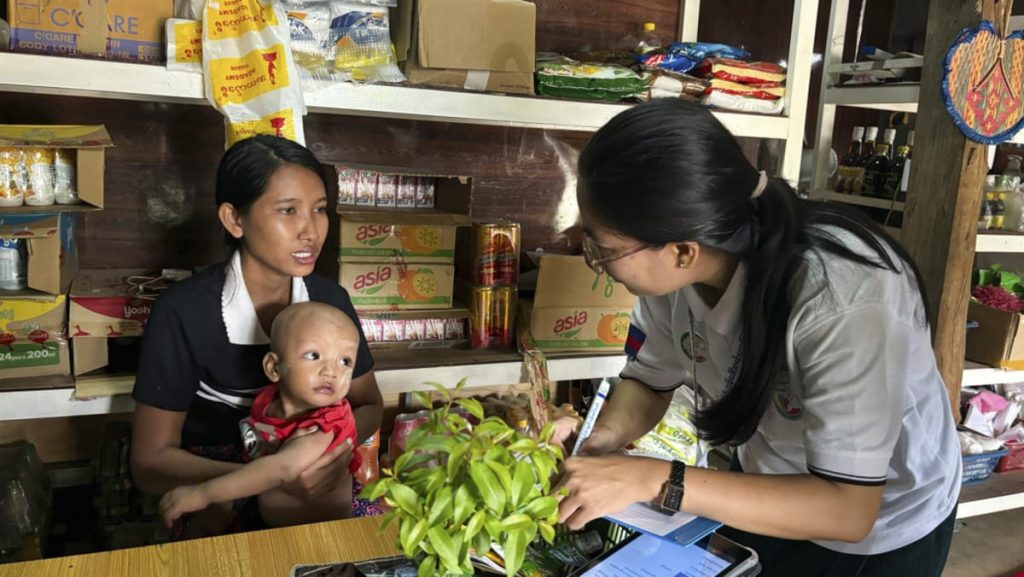Census takers in Myanmar, guarded by police and soldiers, began a national survey despite the opposition of anti-junta groups. The ruling junta, which has lost control of some areas of the country, is moving forward with the census to update voter lists for promised elections in 2025. Enumerators, accompanied by security forces, are going door to door in places like Yangon to collect data for the 68-question survey. Teams comprised of school teachers, local authorities, police, and militia members trained for security are involved in the process.
The ongoing bloody conflict in parts of Myanmar has not deterred the junta from proceeding with the census, as they view the survey as crucial for electoral purposes. The military officer overseeing the operation highlighted the enhanced security measures in place due to perceived threats from “terrorists.” Despite the tense situation in the country, the census continues to be conducted in various regions, showcasing the junta’s determination to move forward with its plans.
The participation of armed police and soldiers in the census-taking process reflects the junta’s approach to maintaining control and ensuring security during a period of significant unrest. The involvement of various groups, including local militias, in assisting with the survey points to a broad-based effort to carry out the national survey under challenging conditions. With tensions running high in Myanmar, the presence of security forces during the census reflects the government’s prioritization of data collection for future electoral purposes.
The decision by the ruling junta to push forward with the census in the face of opposition from anti-junta groups underscores the government’s determination to consolidate power and prepare for upcoming elections in 2025. Despite ongoing conflict and unrest in many parts of the country, the census-taking process is seen as essential for updating vital voter lists and ensuring electoral integrity in the future. Myanmar’s commitment to conducting the survey, despite challenges and security threats, demonstrates the government’s focus on maintaining a semblance of normalcy amid turmoil.
As the census progresses in Myanmar, the presence of police, soldiers, and armed groups underscores the complex security situation facing the country. The military officer’s statement about the involvement of militias in providing security during the survey highlights the collaborative effort taking place to ensure safety and data collection accuracy. With various groups working together to carry out the census, Myanmar faces a delicate balancing act of collecting crucial information while navigating a fractured political landscape and ongoing conflict in many regions of the country.
In conclusion, the national survey in Myanmar taking place amidst violent conflict and political unrest illustrates the challenging environment in which the country finds itself. The junta’s decision to move forward with the census, despite opposition and security threats, reflects its commitment to consolidating power and preparing for future elections. As the survey continues, the involvement of multiple groups in the data collection process demonstrates a concerted effort to overcome obstacles and ensure the accuracy of voter lists. With tensions high and security concerns prevalent, Myanmar’s census-taking efforts shed light on the complexities of governance in a country grappling with internal strife and external pressures.


